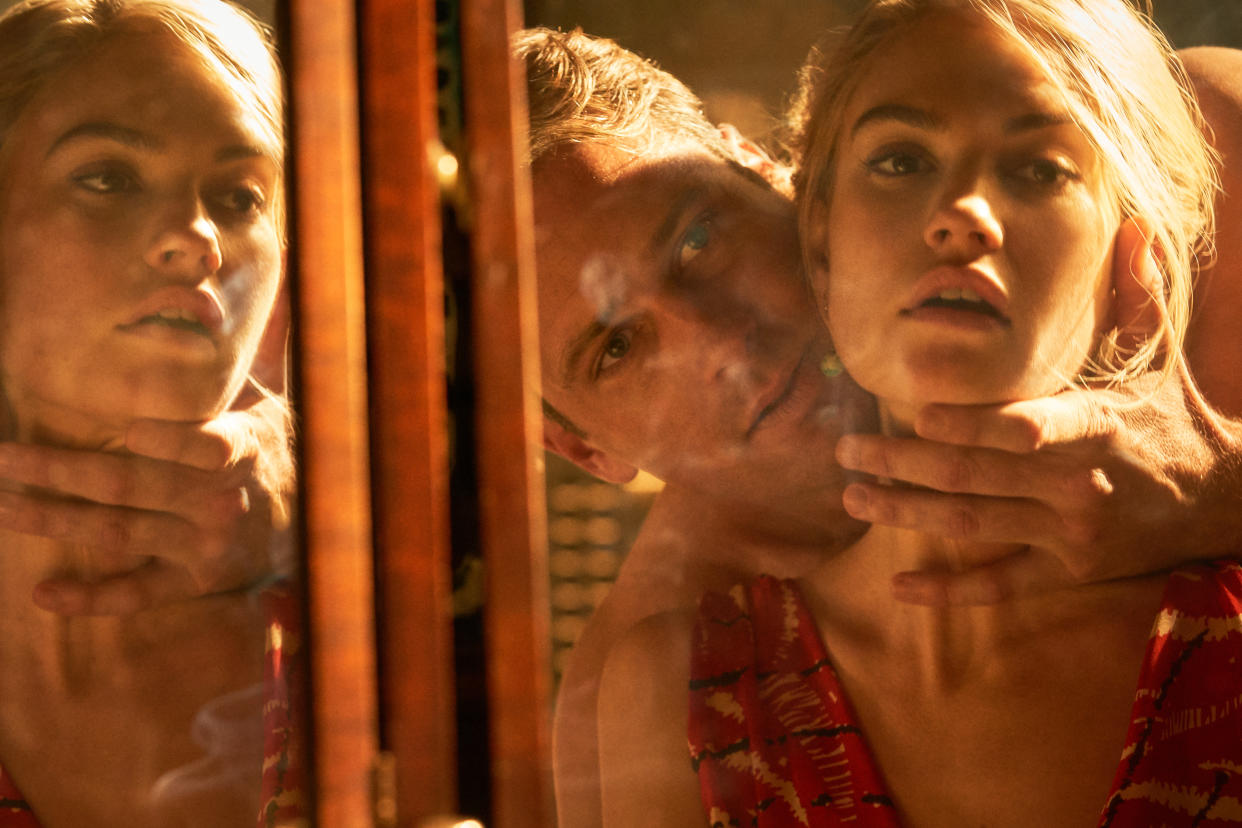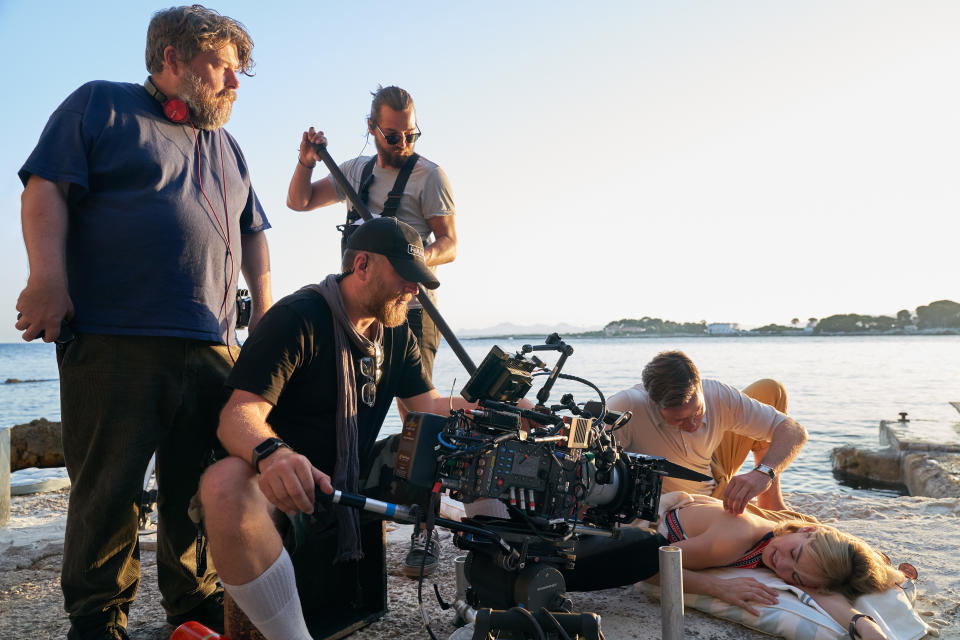'Rebecca' director: We went through the 'gaslighting' themes with a fine tooth comb (exclusive)

Lily James, Armie Hammer and Kristin Scott Thomas spent a lot of ‘rehearsal and discussion’ putting the gaslighting in Rebecca ‘under scrutiny’, says its director Ben Wheatley.
The 1938 Daphne du Maurier novel, upon which it is based, is a ghost story without a ghost; an acclaimed novel about an unnamed young woman who recalls her memory of a dream of her time at Manderley and her marriage as the second Mrs de Winter.
Gaslighting – a form of psychological manipulation in which someone subtly sows seeds of doubt in another, making them question their own, perception, or judgment – is a huge theme throughout the book, and the new Netflix adaptation, both of the second Mrs de Winter, and also of the audience.
“There was a lot of rehearsal and discussion and going through the script with a fine tooth comb,” Wheatley tells Yahoo Movies UK.
Read more: Armie Hammer opens up about losing Batman role
“We held it up to a lot of scrutiny.”
Scott Thomas stars as Mrs Danvers, and Wheatley says she was the one who ensured that the story was worked through carefully: “That’s the kind of performer Kristin is – she's doesn't take any nonsense – so you have to be careful to know exactly what you're talking about when you have a conversation with her.”

But Wheatley, the director of cult classics such as Kill List and Sightseers, is also impressed with the numerous layers of “interesting gaslighting” going on in the story.
“There is the top level of Mrs Danvers to second Mrs de Winter, but also second Mrs de Winter’s gaslighting of the audience, and when I read it I think ‘how much of this is true?’” he shares.
“That's clever, and then there's the gaslighting of du Maurier of the audience, which is all the tricking of the audience, ‘come along with me for this wonderful tale of a widower who meets a girl’ – and then it turns into something they did not expect at all.
“She was trolling the audience, she changed the genre every 30 or 40 pages.”
The audience never meets the titular character of Rebecca – the first Mrs de Winter – who has passed away in tragic circumstances before the second Mrs de Winter meets Maxim de Winter in the south of France.

Working as a companion for an American lady, Mrs de Winter reveals herself to be a naive young woman whose parents have both passed on.
She falls in love with Maxim and the pair marry, before he takes her back to his sweeping Cornish estate, Manderley, where she meets housekeeper Mrs Danvers and the estate’s servants.
But the ghost of Rebecca haunts the mansion – and Maxim – and Mrs de Winter finds herself trying to find her way when no one can accept Rebecca is gone.
Wheatley admits he never considered not using the book’s iconic opening line (“Last night I dreamt I went to Manderley again”) as he knew he would “never get away with not using it.”

It also “sets up the idea that what you are seeing is in the past” and, he says, “that's important” for the audience, new or old, as the story is “not a linear experience and the idea is about layers of reality.”
“It's not only a dream but a memory of a dream, so there are lots of different bits of truth in there – what is the second Mrs de Winter's truth, what is Maxim's truth, and how much of what he says is to be believed, and how much of Danvers is to be believed?
“They all report on Rebecca and so, how much of what they say is true? There is a lot going on in that sentence.”
Rebecca is out in select cinemas on 16 October and on Netflix on 21 October.
Watch: Lily James admits to ‘making mistakes’

 Yahoo Movies
Yahoo Movies 
